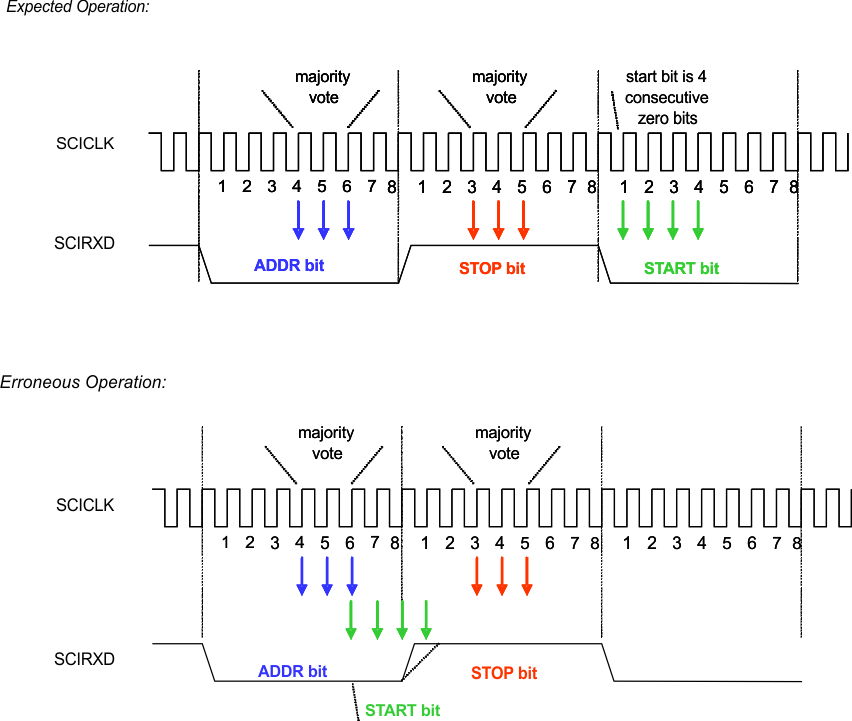SPRZ193T January 2003 – December 2023 SM320F2812 , SM320F2812-EP , SMJ320F2812 , TMS320F2810 , TMS320F2810-Q1 , TMS320F2811 , TMS320F2811-Q1 , TMS320F2812 , TMS320F2812-Q1
Advisory
SCI: Incorrect Operation of SCI in Address Bit Mode
Revision(s) Affected
0, A, B, C, D, E, F and G
Details
The SCI does not look for the STOP bit after the ADDR bit. Instead, the SCI starts looking for the start bit beginning on sub-sample 6 of the ADDR bit. Slow rise time from the ADDR bit to the STOP bit can cause a false START bit to occur since the 4th sub-sample for the start bit may be sensed low.
 Figure 5-1 Difference Between Expected and Erroneous Operation of START Bit
Figure 5-1 Difference Between Expected and Erroneous Operation of START BitWorkaround(s)
Program the baud rate of the SCI to be slightly slower than the actual. This will cause the 4th sub-sample of the false START bit to be delayed in time, and therefore occur more towards the middle of the STOP bit (away from the signal transition region). The amount of baud-slowing needed depends on the rise time of the signal in the system. Alternatively, the IDLE mode of the SCI module may be used, if applicable.